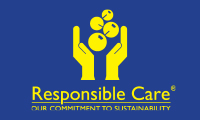With December marking the start of summer in Aotearoa New Zealand, it’s important to be aware of the extra health and safety hazards that come with working outside. Here are some tips to help you work smarter over the coming summer months.

Sun safety
When working in the summer, it’s important to protect yourself from over exposure of sun and UV-rays, which can cause painful sunburn and potentially lead to skin cancer. An estimated 90,000 non-melanoma skin cancers are diagnosed each year in New Zealand, according to the Cancer Society.
- Slip on sun-protective clothing – cover up with UV rated, breathable clothing that complies with your PPE requirements, such as lightweight long pants and long sleeve shirts.
- Slop sunscreen on exposed skin – wear broad-spectrum, water-resistant, SPF30+ sunscreen. Apply 15 minutes before to sun exposure and remember to reapply at least every two hours.
- Slap on a hat – wear a hardhat that has a front or wide brim and neck flap to protect your head, face, and neck from the sun.
- Wrap on tinted glasses – wear closefitting, wrap-around style safety sunglasses to protect your eyes from the sun and other hazards.
If you notice any unusual skin changes or see a spot or mole that is different from
others, get it checked by your doctor.
Keeping cool and hydrated
Hard work on a hot summer’s day can cause our body to become dehydrated, leading to
sweating, headaches, weakness, nausea, confusion, feeling dizzy, and fainting.
If you’re exposed to too much heat for too long, you could be at risk of heatstroke, where your body is unable to cool itself down. Heatstroke is an emergency and needs to be treated
immediately.
- Keep hydrated by regularly drinking water and avoiding drinks with caffeine or
alcohol, which can dehydrate you more. - Wear lightweight clothing if it’s safe to do so – be sure to comply with your company’s
clothing and PPE regulations. - Try to limit or avoid prolonged exposure to extreme heat, and during the hottest part of the day, plan to do work in the shade.
- Take regular breaks from physical work to avoid overheating.
Fatigue
Good weather can mean longer working days to get a job done, but ignoring the signs of
fatigue and tiredness can lead to real risk.
- Schedule and take regular breaks, and extra ones when the job feels harder than usual due to the weather.
- Monitor and place limits around overtime – if you need to work longer hours, consider staggered start and finish times, and longer breaks and periods off work.
- Always use the right tools for the job. Handling vibrating tools can increase fatigue, so consider switching to low-vibration tools or machinery if possible.
- Look out for your own safety, and the safety of other workers. Don’t be afraid to speak up if you think someone needs to take a break.
For more health and safety tips for working in summer, visit www.sitesafe.org.nz







